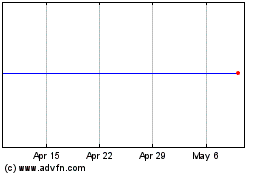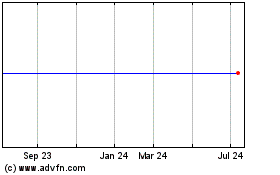Whole Foods Shareholders to Meet to Discuss Growth Declines
February 17 2017 - 7:59AM
Dow Jones News
By Heather Haddon and David Benoit
Whole Foods Market Inc.'s annual shareholders meeting will
convene Friday amid investors' concerns about the organic-food
retailer's ability to make changes to address sustained declines in
sales growth and steep reductions in its share value.
Some investors are saying the Austin, Texas-based company is at
an inflection point: it needs to improve its performance in the
increasingly competitive grocery industry, or potentially face a
challenge to the board in about six months' time, according to
people familiar with the matter.
A Whole Foods spokeswoman declined to comment.
Protest votes against directors without a competing slate of
nominees are unlikely to unseat current board members but can
embolden activists and critics to try to campaign in the following
year, especially if performance hasn't changed.
Last week, Whole Foods delivered a downbeat financial outlook,
with executives dropping previous plans to expand to 1,200 stores
in the U.S. and announcing its largest number of stores closures in
one stint in its nearly 40-year history.
The entire grocery industry is sluggish as increased competition
has eaten into margins and slowed growth, even among industry
standouts such as Kroger Co. Food retail stock prices are down an
average of 3.55% year to date, according to FactSet data. But
mainstream grocers' expansion into natural and organic products has
particularly hurt Whole Foods in a sector it once dominated. The
company's stock has lost more than half its value since its most
recent peak in 2013.
Whole Foods founder and CEO John Mackey pledged last week to use
data and promotions to lure back core shoppers to its 469 stores in
the U.S., Canada and the U.K., and the roughly 80 new ones it is
planning to open. Mr. Mackey will face investors alone for the
first time in six years after the company recently ended its
dual-CEO leadership structure.
Wall Street analysts last week were largely positive on the
company's shift to more fiscal discipline. Other investors were
heartened by Mr. Mackey's candidness about the company's problems.
"A recovery seems likely," said Laura L. McGonagle, senior vice
president at Trillium Asset Management, a Boston investment firm
that owns Whole Foods shares.
But others believe the company has a long way to go to turn
around its bottom line and expect pressure on leadership to
grow.
Neuberger Berman, a top-10 investor with about 2.4% of the
stock, has been privately pushing for faster change at the company,
for example, the people said. It believes Whole Foods resonates
better with millennials and sells more prepared foods than rivals,
but that management hasn't kept up with the chain's growth, the
people said.
"Where are the next-generation kids who are talking about farm
to table? They are trying to embrace that crowd in a groovy way but
they've missed the boat. That's a problem," said Julie Goodridge,
founder and chief executive for Boston-based NorthStar Asset
Management, which decreased its stake in Whole Foods to 1% from 3%
last fiscal quarter after owning the company's stock since
1992.
Proxy advisers, meanwhile, are adding to the pressure with
concerns about Whole Foods' board attendance, executive pay and the
"coziness" of its board, according to Glass Lewis & Co.
Glass Lewis raised red flags over the independence of Whole
Foods' board last month and recommended against the severance
package for Walter Robb, who stepped down as co-CEO in December but
remains on the company's board. Mr. Robb didn't respond to requests
for comment.
Write to Heather Haddon at heather.haddon@wsj.com and David
Benoit at david.benoit@wsj.com
(END) Dow Jones Newswires
February 17, 2017 07:44 ET (12:44 GMT)
Copyright (c) 2017 Dow Jones & Company, Inc.
Whole Foods Market, Inc. (NASDAQ:WFM)
Historical Stock Chart
From Mar 2024 to Apr 2024

Whole Foods Market, Inc. (NASDAQ:WFM)
Historical Stock Chart
From Apr 2023 to Apr 2024
